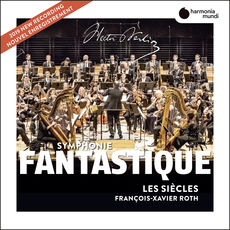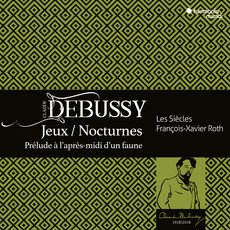You have been invited to perform with your ensemble Les Siècles as part of the 38th edition of the Festival Radio France Montpellier Occitanie, a festival you know well.
Very well indeed! I was a flautist before I became a conductor, and I taught at the Montpellier regional conservatoire. In the 90s, I was also part of a contemporary music ensemble directed by René Bosc, and we were programmed at the festival in 1995 or 1996. That was a long time ago! Later, I had the pleasure of returning to the festival with my own orchestra, Les Siècles, notably in 2013 when we performed The Rite of Spring at the invitation of programmer Pierre Charvet. Radio France Montpellier is also a festival that I’ve regularly attended as a concertgoer, so yes, I’m on familiar ground here!
You are presenting a programme at the festival that brings together two radically different composers, György Ligeti, a representative of the contemporary avant-garde, and Wolfgang Amadeus Mozart, a genius of the classical period. You’re no stranger to this kind of musical departure, which you’ve always emphasised in your programmes. How do you put these two composers into perspective, what is the common thread between them?
Tonight we play Ligeti’s Romanian Concerto and Concerto for Violin and Orchestra, and Mozart’s Concerto for Piano and Orchestra No. 23 and Jupiter Symphony. This is the first time we will be performing this programme on stage before going on tour. The project was primarily intended to celebrate the music of Ligeti, whose 100th birthday we would have celebrated this year. Otherwise, I like the idea of putting works from different eras in dialogue with each other to give a perspective of listening and mirroring experience. Combining Ligeti and Mozart is a way of celebrating this region of Central Europe and the extraordinary genius of these two composers. What they have in common is the vitality and freshness of their music, which is hard to explain. When you listen to works by Ligeti such as the Violin Concerto or Ramifications, you get the impression that the music was written the week before. It’s the same with Mozart: you witness a miracle of musical phenomenon, there’s an almost indescribable energy. What makes Les Siècles so special, moreover, is that it plays on period instruments, in other words, it presents these works on the instruments the composers used to play them. This requires great virtuosity on the part of the musicians, who play Ligeti on modern instruments and Mozart on instruments from the classical era. But it’s also a fascinating experience for the audience, allowing them to delve deeper and hone their listening skills.
Let’s look back at Ligeti’s centenary: he is unanimously acclaimed by the profession and music lovers alike for the uniqueness of his style, his technical virtuosity and the diversity of his compositions. But sometimes one gets the impression that this success is working against him: in the end, he is rarely featured in concert programmes or recorded, as if the complexity of his repertoire continues to intimidate artists and programmers. This anniversary year has seen a proliferation of fine recordings and tribute concerts. Do you think this will change the way Ligeti is perceived by the general public?
I have to disagree with you! In today’s musical landscape, Ligeti is one of the most performed composers of his generation. Now, of course, we can raise the question of the place given to contemporary music and its promotion in our societies. But I don’t think that Ligeti is suffering from a lack of programmes. On the other hand, you are right about one thing: his music may still frighten some musicians, because it’s true that it’s demanding and difficult to perform. But he remains a composer who has been fully integrated into the different repertoires: chamber music, soloists, orchestras...
(Stanley Kubrick included several works by György Ligeti in the soundtracks of his films: Atmosphères, Requiem and Lux Aeterna in 2001, A Space Odyssey; Lontano in The Shining; and Musica Ricercata in Eyes Wide Shut, editor’s note). Other listeners might have had an austere, dry idea of his music. But in the end they enjoy listening to it! Hence, once again, the interest is in associating Ligeti with a composer like Mozart, who is an immediate gateway for the general public.
Les Siècles ont 20 ans ! | Orchestre symphonique - François-Xavier Roth | Concert complet 2022
Théâtre des Champs-ElyséesThis year, we’re celebrating another anniversary that concerns you personally: 20 years of Les Siècles!
These two decades have flown by at breakneck speed! It’s been very instructive, particularly in terms of what I imagined for this orchestra. I’m very proud of the place it has taken today, not only in France but all over the world. It’s 20 years of research, trials and experiments. For a conductor, it’s a singular experience, because conductors are invited to lead orchestras, some of which have existed for centuries. Recently, I was with the Bavarian Opera Orchestra in Munich, which is celebrating its 500th anniversary! And the week before with the Berlin Opera Orchestra, which is celebrating its 450th anniversary. With Les Siècles, which I founded with a bunch of friends - at first we were called a “garage band” - we’ve built something. It’s a very invigorating and interesting mirror, and I’m very proud of this group. I can only hope that we keep the same pioneering spirit for the next 20 years. Because we’ve done a lot of things that nobody has done before. I’m thinking in particular of the Russian ballet project, when we rediscovered the instruments that created The Rite of Spring. Other projects too, on Berlioz, Ravel, Mahler or Bruckner. This is an orchestra with an adventurous soul that I love enormously.
From a recording point of view, 2023 has been a busy year for Les Siècles, with four major releases on Harmonia Mundi, devoted to Stravinsky, Ravel, Ligeti, and soon Saint-Saëns. In 2008, you told Qobuz: “I don’t think there’s any future for physical records”. Are we to understand that you’ve changed your mind?
I told you a load of rubbish back then! It’s really interesting, in the light of our 20 years of existence, to realise just how important records have been in our development. We started recording quite early in the history of the orchestra.
And the recordings were not only markers, witnesses in our journey, but they also opened doors for us. One example I still can’t get over is Japan. We’ve got a huge fan community in Japan, which was built up purely thanks to physical records. They discover our work through them, and they continue to follow our albums through them. So obviously, it may be harder to find a hi-fi system with a CD player today than it was 20 years ago, but the physical record still exists! Precariously, but it continues to resist. Now we’re even seeing a revival of interest in vinyl. Not all segments are affected to the same degree, but in classical music, the record is still important.
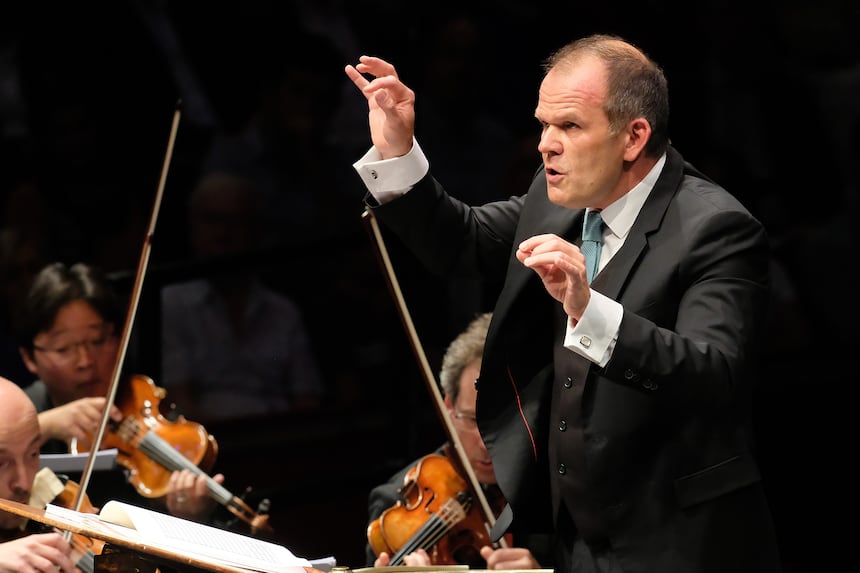
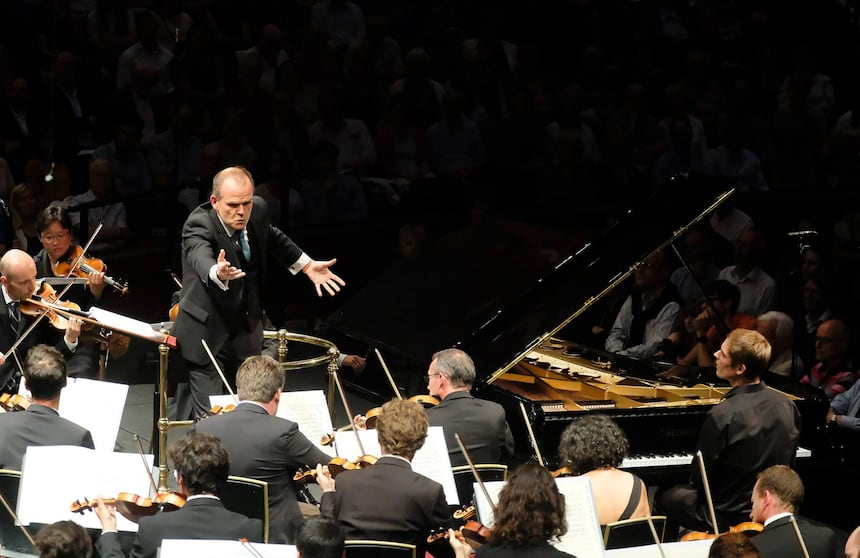
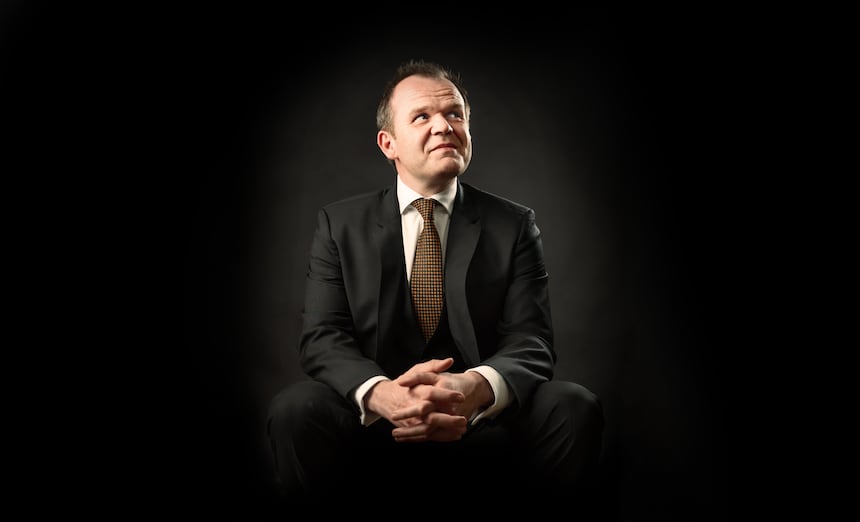
A few months ago, you were appointed to lead the Südwestrundfunk Symphony Orchestra in Stuttgart from the 2025-2026 season. How do you feel about this new chapter?
I’m infinitely happy to be taking over the direction of this orchestra. It’s a magnificent orchestra, and I know some of it because I was director of the SWR Freiburg/Baden Baden Orchestra for five years before it merged with the Stuttgart Orchestra. It’s an orchestra with an extraordinary culture of contemporary music and of the 20th century in general. I’m also thinking of the monumental work they did in the days of Roger Norrington, who had a way of reading composers of the past, whether classical or romantic, with a truly unique stylistic acuity. I’m looking forward to joining them in 2025!
You’ve often cited John Eliot Gardiner and Pierre Boulez as the most influential figures in shaping your identity as a conductor. What do you remember about them?
They taught me a lot, not just about conducting. They were two conductors who knew how to found musical institutions that didn’t exist in order to develop their own projects. They were a great inspiration to me when I created Les Siècles. In fact, Pierre Boulez was very attentive to the work of Les Siècles towards the end of his life, and gave us a lot of encouragement and help. And John Eliot is a close friend to whom I owe a great deal (François-Xavier Roth was Gardiner’s assistant conductor for several years, editor’s note). This year, he celebrated his 80th birthday, and when I see that he still has the same form, the same desire, the same musical appetite... I hope to have the same energy at the same age. For me, he’s an example, a musical giant.







